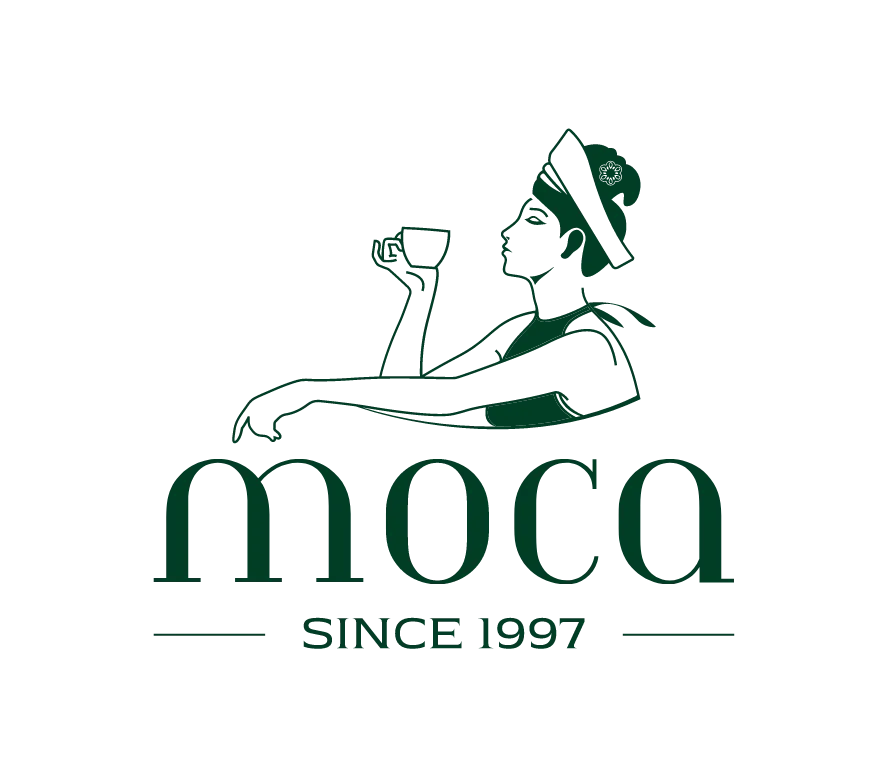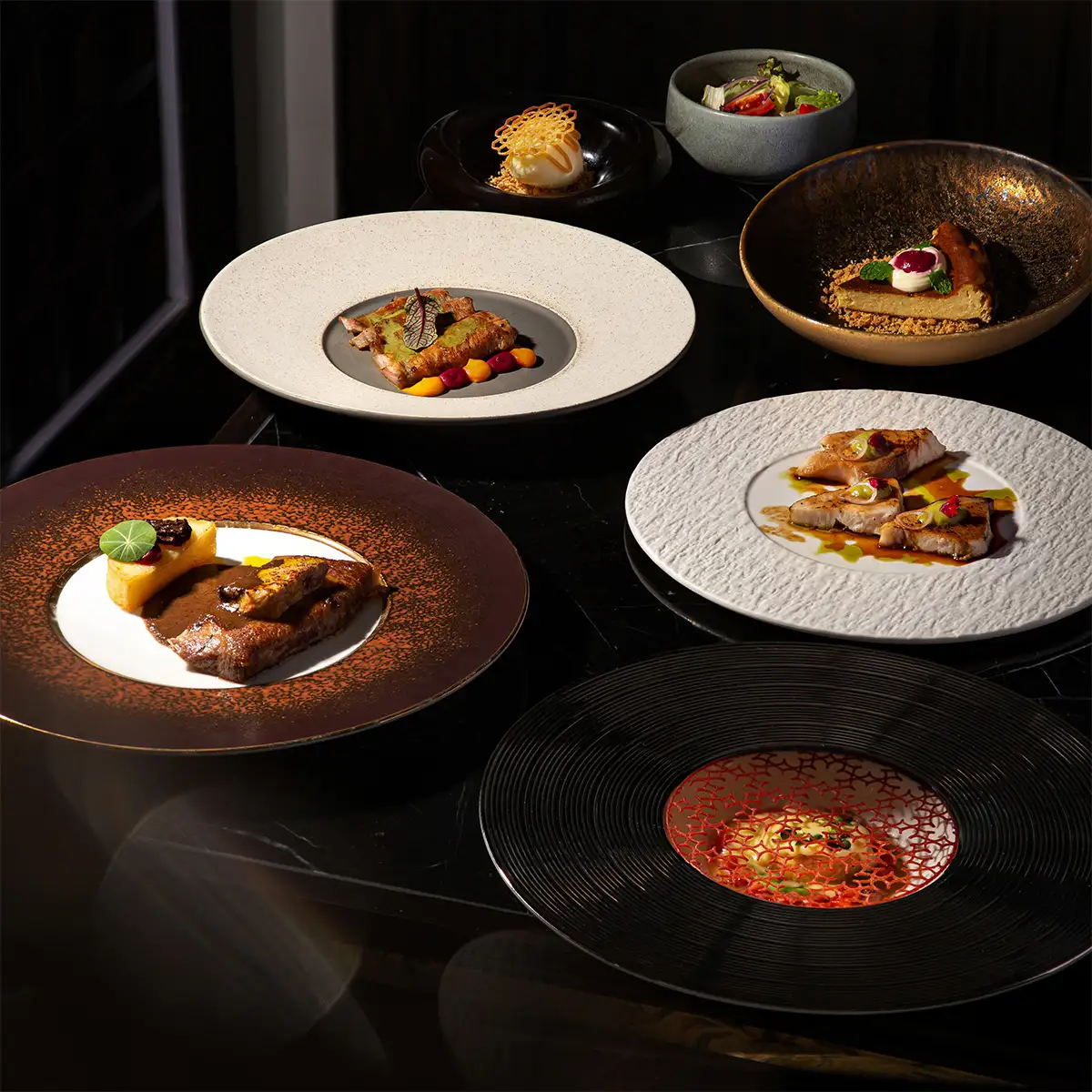- 1. Understanding zero waste in the fine dining context
- 2. Core strategies for achieving zero waste in fine dining operations
- 2.1. Intelligent sourcing and ingredient maximization
- 2.2. Optimized kitchen management and operations
- 2.3. Thoughtful front-of-house practices
- 2.4. Supply chain collaboration and partnerships
- 3. Challenges and innovations in zero waste fine dining
- 4. The benefits: Beyond environmental impact
- 5. Moca Dining's commitment to zero waste in fine dining
In the world of haute cuisine, a compelling paradox exists: the pursuit of unparalleled luxury often generates significant waste. However, a transformative movement is reshaping the landscape of gastronomy. This is the era of zero waste in fine dining, a philosophy that extends far beyond simple recycling into a holistic commitment to sustainability. For the modern epicurean, true luxury is no longer defined solely by what is on the plate, but by the consciousness and integrity behind its creation. This guide will explore the philosophy, practical strategies, inherent challenges, and profound benefits of adopting zero waste principles within the fine dining sector, highlighting its role in shaping a more sustainable future for gastronomy.
1. Understanding zero waste in the fine dining context
The journey towards restaurant sustainability begins with a clear understanding of its core tenets. This is not a trend, but a fundamental re-evaluation of our relationship with resources.
Defining zero waste
At its heart, the zero waste philosophy is a commitment to diverting 90% or more of all waste from landfills, incinerators, and our oceans. In the context of fine dining, this translates to a comprehensive operational ethos that scrutinizes every stage of the culinary process—from ethical sourcing and meticulous preparation to elegant service and responsible disposal. It is a circular system where outputs are designed to become inputs, fostering a culture of profound respect for every ingredient.
The imperative for sustainability in high-end cuisine
The adoption of sustainable fine dining practices is driven by a convergence of environmental, ethical, and economic imperatives. Environmentally, food waste is a significant global issue, with the foodservice sector being a major contributor. The United Nations Environment Programme's 2024 Food Waste Index Report highlighted that the foodservice industry accounts for 28% of global food waste. Ethically, leading culinary institutions have a responsibility to champion environmental stewardship, setting a standard for resource management.
Furthermore, there is a clear shift in consumer values. A growing number of discerning diners actively seek out establishments that align with their principles, making eco-friendly dining a powerful market differentiator. Economically, the benefits are tangible. Efficient resource utilization, from minimizing food spoilage to reducing disposal fees, directly enhances operational profitability—a clear demonstration that sustainability and financial success are not mutually exclusive.
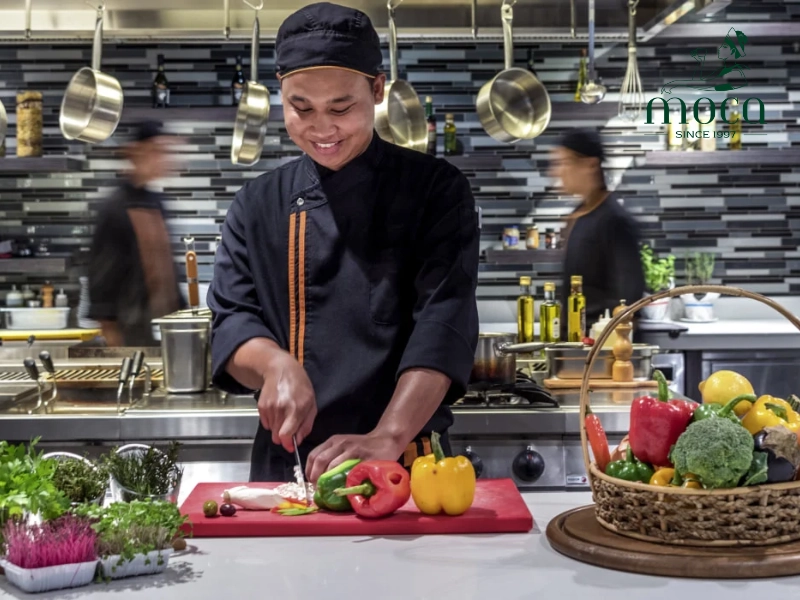
Zero waste in fine dining: respecting every ingredient, redefining luxury.
2. Core strategies for achieving zero waste in fine dining operations
Achieving zero waste in fine dining requires a multi-faceted approach, integrating innovative strategies across both back-of-house and front-of-house operations.
2.1. Intelligent sourcing and ingredient maximization
The foundation of food waste reduction is built upon a philosophy of total utilization. This begins with sourcing locally and seasonally to reduce transportation footprints and continues in the kitchen with the steadfast application of nose-to-tail eating and "root-to-stem" cooking. These practices ensure that every part of an animal or plant is honored.
For instance, many leading kitchens have perfected this art.
- At New York's Junoon, Chef Akshay Bhardwaj masterfully utilizes a whole dry-aged duck: the breast is served as a main course, the legs are confited for a traditional lentil dish, and the carcass is used to create a deeply flavorful stock.
- Chef Paul Fehribach of Big Jones in Chicago transforms the tough, woody bottoms of asparagus—parts that are typically discarded—by slow-roasting them to create velvety purées and bisques.
Similarly, coffee grounds are repurposed in inventive ways, such as at The Harbor House in California, where they are used to cure bacon or infuse oil for a dessert sauce, adding unexpected depth and complexity.
This creative transformation of by-products is central to sustainable gastronomy.
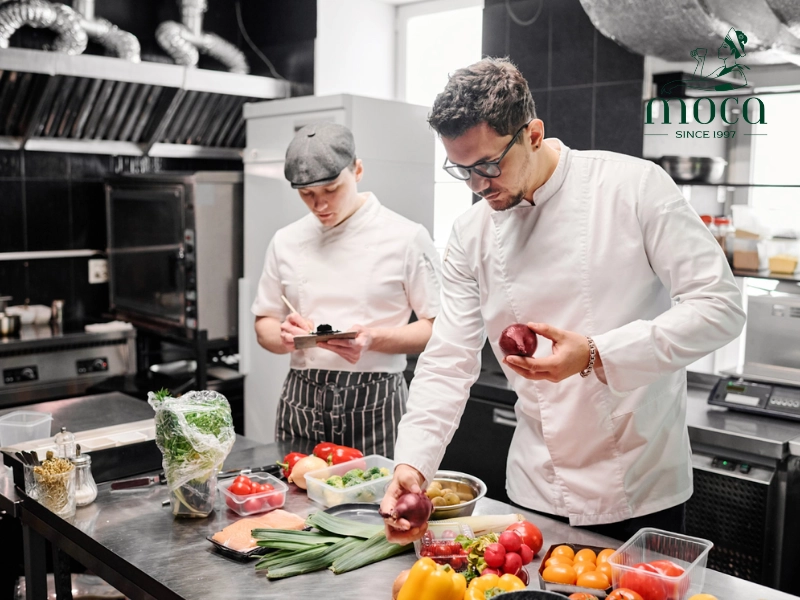
From root to stem, from nose to tail—every part has a purpose in sustainable fine dining.
2.2. Optimized kitchen management and operations
Operational precision is paramount. U.S. restaurants generate an estimated 22 to 33 billion pounds of food waste each year, a figure that zero-waste strategies aim to drastically reduce. This is achieved through several key actions:
- Precise inventory control: Implementing robust digital systems to monitor stock levels minimizes over-ordering and spoilage.
- Menu engineering: Designing menus that allow for the cross-utilization of ingredients across multiple dishes ensures that nothing sits idle.
- Organic waste diversion: On-site composting and partnerships with anaerobic digestion facilities are critical for diverting unavoidable organic scraps from landfills.
- Advanced recycling: Programs must go beyond glass and cardboard to include specialized recycling for items like cooking oil and specific types of plastics.
- Utility efficiency: Investing in low-flow water fixtures and energy-efficient appliances further reduces the restaurant's environmental footprint.
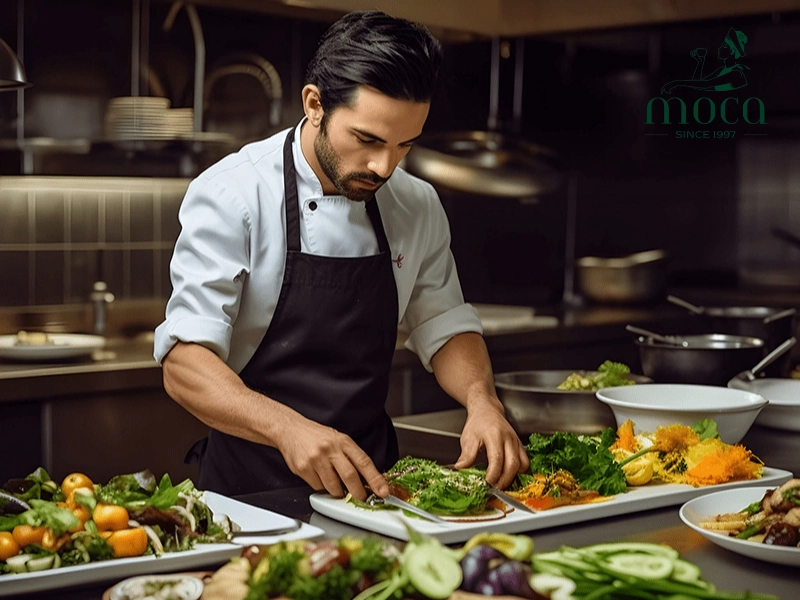
Smart kitchens, sustainable futures: precision is the new ingredient in fine dining.
2.3. Thoughtful front-of-house practices
In a zero-waste restaurant, the commitment to sustainability should be clearly visible to every guest, beginning with the front-of-house experience. This includes the complete elimination of single-use plastics and the use of high-quality, reusable tableware, glassware, and cloth linens.
These visible choices signal to diners that sustainability is not just a behind-the-scenes effort but a core value embedded in the entire dining experience. Staff engagement also plays a crucial role—training servers to discuss portion sizes or menu flexibility with guests encourages conscious consumption and reduces food waste. When leftovers are requested, offering aesthetically pleasing, compostable containers reinforces the restaurant’s responsibility loop and ensures that sustainability continues beyond the table.
2.4. Supply chain collaboration and partnerships
No zero-waste restaurant can achieve its goals in isolation. Long-term success depends on building strong, values-aligned partnerships across the entire supply chain. This begins with sourcing ingredients from suppliers who are equally committed to sustainability—prioritizing those who provide goods in bulk, utilize reusable or returnable delivery containers, and minimize packaging wherever possible.
Forward-thinking examples, like Silo in London, have pioneered such systems, proving that sustainable collaboration is both feasible and effective. In addition, conducting regular waste audits is essential to understanding the restaurant’s environmental footprint. These audits provide actionable data that help identify areas for improvement, refine procurement practices, and track progress toward zero-waste goals.
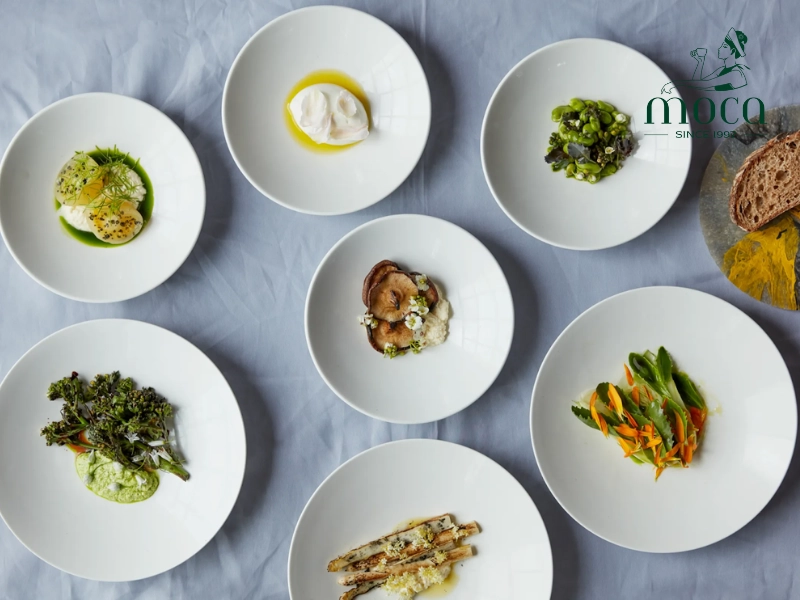
From table to supplier, every detail reflects a zero-waste philosophy
3. Challenges and innovations in zero waste fine dining
The path to zero waste is one of continuous improvement, marked by both challenges and groundbreaking innovations.
- Overcoming hurdles: Adopting these principles requires navigating several obstacles. The initial investment in new equipment and staff training can be significant. It demands a complete mindset shift, cultivating a culture where every team member is an agent of food waste reduction. A primary challenge is maintaining the highest standards of luxury and aesthetic appeal, ensuring that sustainability enhances, rather than compromises, the guest experience.
- Pioneering innovations: Innovation is the engine of the zero-waste movement. Restaurants are developing on-site hydroponic gardens to guarantee freshness while eliminating food miles. Others are designing closed-loop systems where waste from one process, like fermentation, becomes a key ingredient in another. Technology also plays a vital role, with AI-powered systems used for demand forecasting and smart bins for automated waste sorting.
A premier example of such innovation is Silo in London, the world's first zero-waste restaurant. Chef Douglas McMaster has created a model that operates without a bin. Silo works directly with farmers to receive all goods in reusable containers, mills its own flour, and churns its own butter. Most impressively, the restaurant upcycles materials that would otherwise be discarded into beautiful, functional design elements: dining tables are crafted from reconstituted food packaging, and plates are formed from melted-down plastic bags.
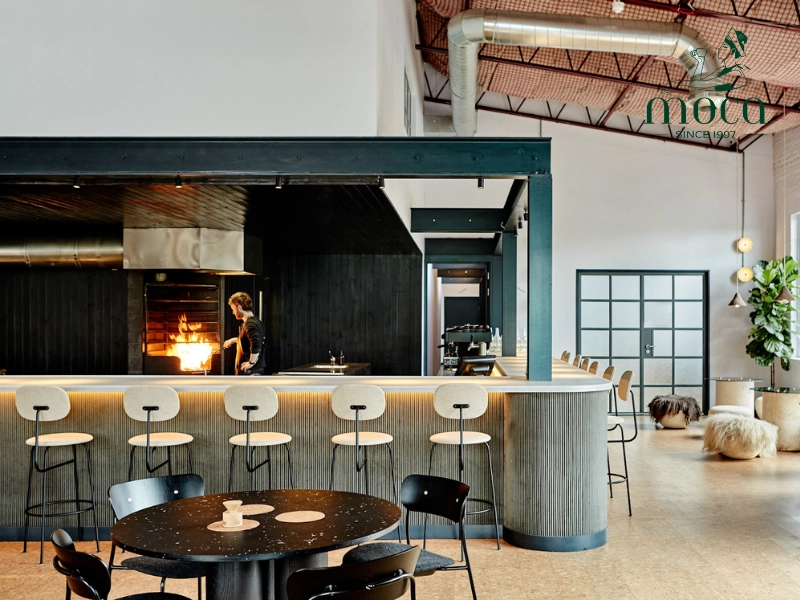
Zero waste dining meets innovation—where sustainability fuels creativity.
4. The benefits: Beyond environmental impact
The rewards of embracing a zero-waste philosophy are both profound and multifaceted. While the environmental benefits—such as reduced landfill waste, lower carbon emissions, and conservation of resources—are critical, the impact goes far beyond sustainability metrics. In the context of zero waste in fine dining, this approach significantly enhances a restaurant’s brand reputation, positioning it as a pioneer in sustainable gastronomy. It appeals strongly to environmentally conscious diners, fostering long-term customer loyalty and deepening the connection between guest and establishment.
Operationally, implementing zero waste in fine dining can lead to more efficient kitchen workflows, smarter inventory management, and a noticeable reduction in waste disposal costs. These streamlined processes not only support the bottom line but also improve overall service quality. Most importantly, fine dining restaurants that embrace zero-waste practices serve as powerful examples of how culinary excellence and environmental responsibility can harmoniously coexist. They inspire both industry peers and the public, showing that high-end dining experiences can—and should—be both luxurious and sustainable.
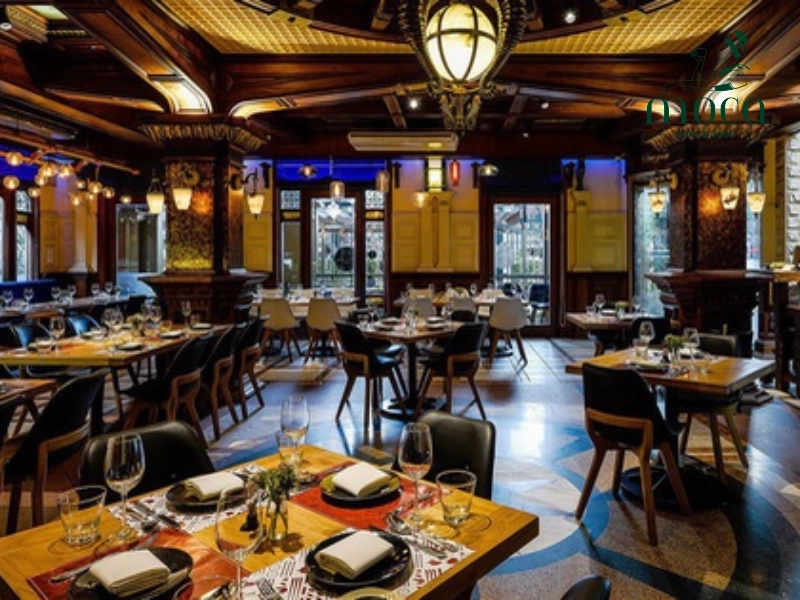
Zero waste isn’t just sustainable—it’s smart, elegant, and the future of fine dining.
5. Moca Dining's commitment to zero waste in fine dining
At Moca Dining, the principles of zero waste in fine dining are not an afterthought; they are woven into the very fabric of our culinary philosophy. We believe that meticulous resource management is the ultimate expression of respect—for our ingredients, our guests, and our planet.
Our commitment is reflected in tangible actions. We partner with local purveyors who share our vision, prioritize "root-to-stem" cooking in our menu development, and operate an advanced in-house composting program. Two examples that embody our approach are:
- The ‘Total Catch’ Halibut: This signature dish is a celebration of whole-ingredient utilization. The prime fillet is pan-seared to perfection. The delicate collar, often overlooked, is transformed into a light, crispy croquette. The bones are used to create a rich, clear consommé that forms the base of the sauce, and the skin is crisped into a savory garnish. Nothing is wasted; every part contributes to a multi-layered flavor experience.
- Our In-House Water & Herb Program: To eliminate bottle waste entirely, Moca Dining has invested in a state-of-the-art water filtration and carbonation system, allowing us to serve pristine still and sparkling water in elegant, reusable glass carafes. Adjacent to our kitchen, a small hydroponic garden provides our chefs with a constant supply of fresh herbs and microgreens for garnishing, completely removing the packaging and transportation footprint associated with these delicate ingredients.
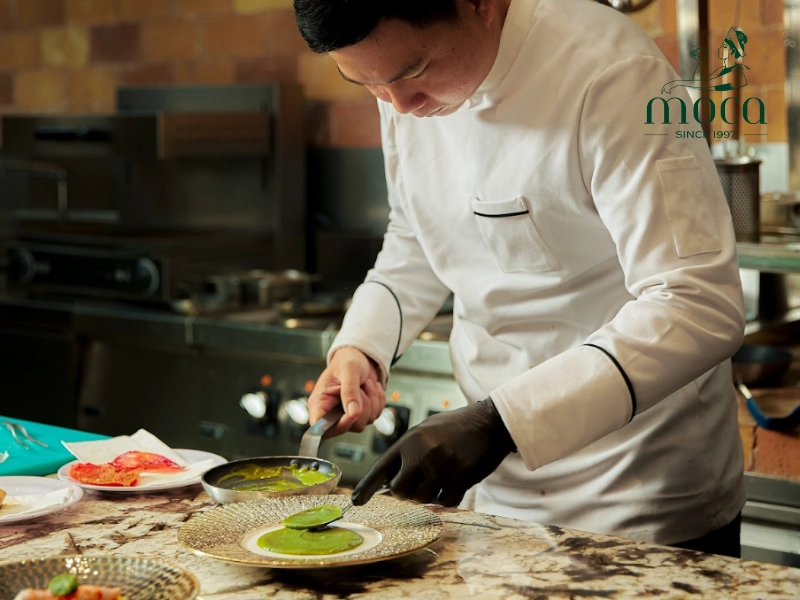
At Moca Dining, every ingredient tells a story—waste is never part of the menu.
The movement towards zero waste in fine dining is more than a collection of strategies; it is a redefinition of luxury for the 21st century. It champions the idea that true opulence lies in conscious consumption, meticulous craftsmanship, and a deep-seated respect for our environment. This philosophy proves that culinary excellence can be a powerful force for positive change.
We encourage both our esteemed guests and industry professionals to embrace and support this vital shift. We invite you to experience the future of sustainable fine dining at Moca Dining, where exquisite taste meets unwavering environmental stewardship. Join us—reserve your table today and be part of a more mindful, flavorful future.
